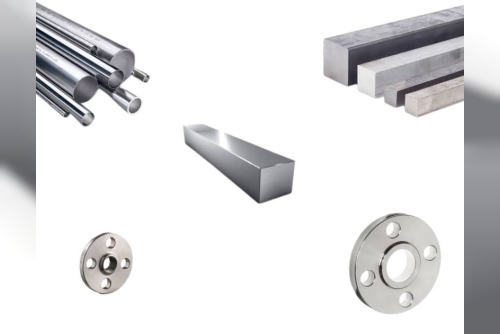When it comes to woodworking and construction projects, understanding plywood dimensions is crucial. One common question that often arises is, "How many mm is 8x4 plywood?" In this comprehensive guide, we'll dive deep into the world of plywood sizes, with a particular focus on the popular 8x4 sheet. We'll explore various aspects of plywood dimensions, including conversions between different units of measurement, standard sizes, and practical applications.
Understanding Plywood DimensionsThis section serves as a foundational element of the article, helping readers grasp the basic concepts of plywood measurements. It's divided into two key subsections:
What Does 8x4 Plywood Mean?Before we delve into the metric measurements, let's clarify what 8x4 plywood actually means:
The first number (8) represents the length of the sheet in feet
The second number (4) represents the width of the sheet in feet
So, an 8x4 sheet of plywood is 8 feet long and 4 feet wide.
Converting Feet to MillimetersTo answer the question "How many mm is 8x4 plywood?" we need to convert feet to millimeters. Here's the conversion process:
Convert feet to inches:
8 feet = 96 inches (8 x 12)
4 feet = 48 inches (4 x 12)
Convert inches to millimeters:
1 inch = 25.4 mm
96 inches = 2438.4 mm (96 x 25.4)
48 inches = 1219.2 mm (48 x 25.4)
Therefore, an 8x4 sheet of plywood measures approximately:
2438.4 mm x 1219.2 mm
For practical purposes, these measurements are often rounded to:
2440 mm x 1220 mm
Standard Plywood SizesWhile 8x4 is a common plywood size, it's essential to understand that plywood comes in various dimensions to suit different project requirements. Let's explore some standard plywood sizes:
Common Plywood Sizes in Feet8x4 feet (2440 mm x 1220 mm)
4x4 feet (1220 mm x 1220 mm)
4x8 feet (1220 mm x 2440 mm)
10x4 feet (3050 mm x 1220 mm)
10x5 feet (3050 mm x 1525 mm)
Plywood Size in Feet vs. Metric MeasurementsWhen discussing plywood size in feet, it's important to note that these measurements are often nominal. The actual dimensions may vary slightly due to manufacturing processes and industry standards. Here's a comparison of nominal sizes in feet and their metric equivalents:
Nominal Size (feet)
Actual Size (mm)
8x4
2440 x 1220
4x4
1220 x 1220
4x8
1220 x 2440
10x4
3050 x 1220
10x5
3050 x 1525
Factors Affecting Plywood DimensionsSeveral factors can influence the actual dimensions of plywood sheets:
Manufacturing tolerances
Moisture content
Expansion and contraction due to environmental conditions
Sanding and finishing processes
It's important to keep these factors in mind when planning your project and to measure your plywood sheets before cutting or installation.
Practical Applications of 8x4 PlywoodUnderstanding the dimensions of 8x4 plywood (2440 mm x 1220 mm) is crucial for various applications. Here are some common uses for this popular plywood size:
Wall sheathing
Roof decking
Subflooring
Furniture making
Cabinet construction
Concrete formwork
Temporary structures and hoarding
DIY projects and home improvements
Choosing the Right Plywood for Your ProjectWhen selecting plywood for your project, consider the following factors:
Size requirements
Thickness needed
Grade and quality of plywood
Type of wood used (e.g., pine, birch, oak)
Intended use (interior or exterior)
Budget constraints
Tips for Working with 8x4 PlywoodTo make the most of your 8x4 plywood sheets, consider these helpful tips:
Plan your cuts to minimize waste
Use appropriate tools for cutting (circular saw, table saw, or panel saw)
Support the entire sheet when cutting to prevent splintering
Apply edge banding or trim to exposed edges for a finished look
Store plywood flat to prevent warping
Acclimate plywood to the installation environment before use
Environmental ConsiderationsWhen working with plywood, it's important to consider the environmental impact. Here are some eco-friendly practices to keep in mind:
Choose sustainably sourced plywood (look for FSC certification)
Opt for formaldehyde-free or low-emission plywood
Recycle or repurpose scrap pieces
Use water-based finishes and adhesives when possible
Q1: Why is 8x4 plywood actually 2440 mm x 1220 mm instead of 2438.4 mm x 1219.2 mm?A: The slight difference in measurements is due to industry standards and manufacturing practices. The rounded dimensions of 2440 mm x 1220 mm allow for easier calculations and slight variations in production.
Q2: Can I use 8x4 plywood for exterior projects?A: Yes, but make sure to choose exterior-grade plywood that's designed to withstand moisture and weather conditions. Look for plywood labeled as "exterior" or "marine-grade" for outdoor use.
Q3: How thick is standard 8x4 plywood?A: 8x4 plywood comes in various thicknesses, typically ranging from 1/4 inch (6 mm) to 1 inch (25 mm). Common thicknesses include 3/8 inch (9 mm), 1/2 inch (12 mm), and 3/4 inch (18 mm).
Q4: How much does an 8x4 sheet of plywood weigh?A: The weight of an 8x4 plywood sheet depends on its thickness and the type of wood used. On average, a 3/4 inch thick sheet of 8x4 plywood weighs between 60 to 90 pounds (27 to 41 kg).
Q5: How do I calculate the square footage of an 8x4 plywood sheet?A: To calculate the square footage, multiply the length (8 feet) by the width (4 feet). An 8x4 sheet of plywood covers 32 square feet.
Q6: Can I cut an 8x4 plywood sheet to smaller sizes?A: Absolutely! You can cut 8x4 plywood sheets to any size you need for your project. Just make sure to measure carefully and use the appropriate cutting tools.
Q7: How does the plywood size in feet relate to metric measurements?A: Plywood size in feet is a nominal measurement, while metric measurements are more precise. For example, an 8x4 foot sheet is approximately 2440 mm x 1220 mm in metric units.
ConclusionUnderstanding the dimensions of 8x4 plywood is essential for anyone working with this versatile material. We've explored how an 8x4 sheet translates to approximately 2440 mm x 1220 mm, making it suitable for a wide range of applications in construction and woodworking projects.
Remember that while plywood size in feet is a common reference point, metric measurements provide more precise dimensions for detailed project planning. Whether you're tackling a DIY home improvement task or working on a large-scale construction project, knowing the exact measurements of your plywood sheets will help ensure accuracy and efficiency in your work.
As you embark on your next project involving 8x4 plywood, keep in mind the various factors that can affect its dimensions, such as manufacturing tolerances and environmental conditions. By considering these aspects and following the tips provided in this guide, you'll be well-equipped to make the most of this popular plywood size.
Ultimately, the key to success when working with plywood lies in careful planning, precise measurements, and selecting the right type and size for your specific needs. With this comprehensive understanding of 8x4 plywood dimensions, you're now ready to tackle your woodworking and construction projects with confidence.










 Luxurious 2-Bhk Furnished Apartment Rent in Baridhara
Luxurious 2-Bhk Furnished Apartment Rent in Baridhara

